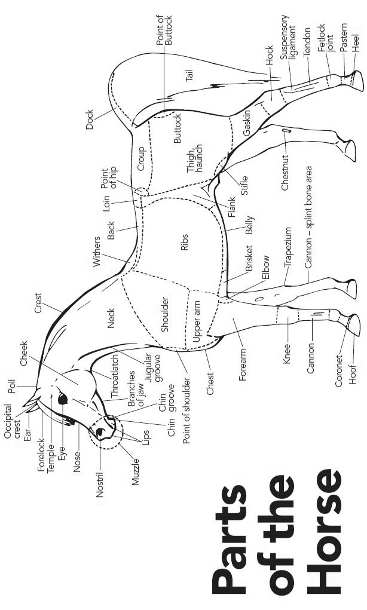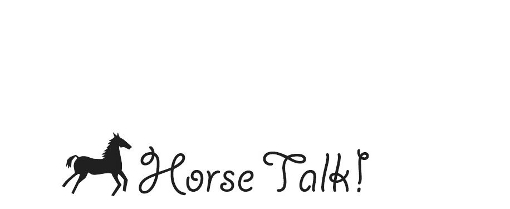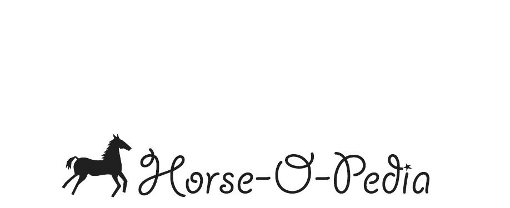Gift Horse (17 page)

Mason was still staring at the rock. He acted as if he hadn't heard her.
I wondered if he understood, if he knew he'd never see Gracie again. He seemed to be slipping into that secret place of his. I pictured him hugging Gracie's leg, staring at her dappled hair, touching her belly where the baby horse was sleeping. And in that instant I knew what I needed to do.
“Would everybody come out in the barn with me?” I asked.
“Now?” Madeline said.
I filled another bottle with colostrum. Then everybody followed me back to the barn. M, Catman, and Nickers were faithfully watching over the foal.
“M!” Lizzy cried. “What did you do?”
The foal was wearing M's black sweatshirt, which was a great idea and a great fit.
“Thought she looked cold,” he said.
Mason wandered to Gracie's stall and stared in. The stall was empty now. Dr. Stutzman had taken care of that. But Mason looked like he still felt the absence of another horse he'd loved and lost.
Madeline tried to pull him away, but he shook her off.
I went over to him. “Mason,” I said, “I want you to meet somebody who needs your help.”
He turned his blank face to me.
I glanced up at Madeline. “He'll be okay.”
I carried Mason into Nickers' stall and felt his body surge with energy and life again the second he caught sight of the foal.
“Baby horse!” he cried, squirming out of my arms and stumbling to the foal.
I showed him how to hold the bottle and feed her. He giggled, but held on to the bottle with both hands.
“Jack,” I heard Madeline say to Dad, “I don't know if I want him to go through this all over again.”
I stood up beside Mason, my heart pounding and calming at the same time. I glanced at M, and his eyes told me we were thinking the same thing. He knew what I had to do.
“It's okay, Madeline. You don't have to worry. The foal isn't going anywhere.” I turned to Mason. “She's yours, Mason. The baby horse belongs to you.”
Somebody gasped.
Mason squealed and hugged the foal.
I turned to Madeline. “We'll keep her for you free. And I'll train her and do all the work.” I knelt and put one arm around the foal and the other around Mason. “But this foal is yours to keep, Mason.”
It should have been about the hardest thing I'd ever done. I'd loved Gracie, and I loved her foal every bit as much. But somehow, loving the foal and loving Mason . . . the only thing left to do was give them to each other. “Merry Christmas, Mason.”
We were still hugging and crying and laughing when Barker walked into the barn, carrying a bleating, white goat. Behind him came Mr. Barker, with Mark and Matthew, each carrying two puppies.
“Merry Christmas!” Mr. Barker shouted.
“Eddy Barker!” Lizzy exclaimed. “Where did you get that?”
“Granny. She had it brought up from her farm. Granny claims goats' milk is the closest thing to horses' milk. She thought this nanny might come in handy.”
“Your granny is amazing, Barker!” I cried. And she was right about the milk. Once the foal got enough colostrum, I could get her to nurse from the goat. “Tell her thanks, Barker.”
Barker struggled with the goat and fought to keep his balance. Catman, trailed by a swarm of cats, came to the rescue. The two of them carried the goat into an empty stall and shut the door.
M met Mark and Matthew in the stallway, and Matthew handed him the two black puppies he was carrying. The puppies licked M's face and wagged their tails. Then Mark handed him one of the two dogs he was carrying.
“Hope your parents like their Christmas gifts,” Mark said, clinging to the remaining dog in his arms. “I liked your idea of giving yourself a puppy. So I gave me Zorro.”
“It was our compromise,” Mr. Barker added. “Mark gets to keep the runt of the litter, and he'll still be able to visit M's three dogs.”
The whole time Mason had held his ground with the foal, making sure that she kept coming back to the bottle.
Snow fell lightly as dawn glowed through the barn windows. We could have all been sealed inside one of those snow globes. I thought about Mary and Joseph and Jesus as a baby. We had Nickers, a foal, a goat, puppies, and cats instead of a donkey, sheep, and camels. But Jesus, not the baby, was in our barn too. And as I watched Mason holding that bottle while the foal tugged life from it, I could almost hear angels sing.
We'd all seen the miracle, how something so humble in a stable could suffer to bring us a giftâfree and priceless grace. Gracie
had
been a gift horse.



Horses communicate with one another . . . and with us, if we learn to read their cues. Here are some of the main ways a horse talks:
Whinnyâ
A loud, long horse call that can be heard from a half mile away. Horses often whinny back and forth.
Possible translations:
Is that you over there? Hello! I'm over here! See me? I heard you! What's going on?
Neighâ
To most horse people, a neigh is the same as a whinny. Some people call any vocalization from a horse a neigh.
Nickerâ
The friendliest horse greeting in the world. A nicker is a low sound made in the throat, sometimes rumbling. Horses use it as a warm greeting for another horse or a trusted person. A horse owner might hear a nicker at feeding time.
Possible translations:
Welcome back! Good to see you. I missed you. Hey there! Come on over. Got anything good to eat?
Snortâ
This sounds like your snort, only much louder and more fluttering. It's a hard exhale, with the air being forced out through the nostrils.
Possible translations:
Look out! Something's wrong out there! Yikes! What's that?
Blowâ
Usually one huge exhale, like a snort, but in a large burst of wind.
Possible translations:
What's going on? Things aren't so bad. Such is life.
Squealâ
This high-pitched cry that sounds a bit like a scream can be heard a hundred yards away.
Possible translations:
Don't you dare! Stop it! I'm warning you! I've had itâI mean it! That hurts!
Grunts, groans, sighs, sniffsâ
Horses make a variety of sounds. Some grunts and groans mean nothing more than boredom. Others are natural outgrowths of exercise.
Horses also communicate without making a sound. You'll need to observe each horse and tune in to the individual translations, but here are some possible versions of nonverbal horse talk:
EARS
Flat back earsâ
When a horse pins back its ears, pay attention and beware! If the ears go back slightly, the horse may just be irritated. The closer the ears are pressed back to the skull, the angrier the horse.
Possible translations:
I don't like that buzzing fly. You're making me mad! I'm warning you! You try that, and I'll make you wish you hadn't!
Pricked forward, stiff earsâ
Ears stiffly forward usually mean a horse is on the alert. Something ahead has captured its attention.
Possible translations:
What's that? Did you hear that? I want to know what that is! Forward ears may also say, I'm cool and proud of it!
Relaxed, loosely forward earsâ
When a horse is content, listening to sounds all around, ears relax, tilting loosely forward.
Possible translations:
It's a fine day, not too bad at all. Nothin' new out here.
Uneven earsâ
When a horse swivels one ear up and one ear back, it's just paying attention to the surroundings.
Possible translations:
Sigh. So, anything interesting going on yet?
Stiff, twitching earsâ
If a horse twitches stiff ears, flicking them fast (in combination with overall body tension), be on guard! This horse may be terrified and ready to bolt.
Possible translations:
Yikes! I'm outta here! Run for the hills!
Airplane earsâ
Ears lopped to the sides usually means the horse is bored or tired.
Possible translations:
Nothing ever happens around here. So, what's next already? Bor-ing.
Droopy earsâ
When a horse's ears sag and droop to the sides, it may just be sleepy, or it might be in pain.
Possible translations:
Yawn . . . I am so sleepy. I could sure use some shut-eye. I don't feel so good. It really hurts.
TAIL
Tail switches hard and fastâ
An intensely angry horse will switch its tail hard enough to hurt anyone foolhardy enough to stand within striking distance. The tail flies side to side and maybe up and down as well.
Possible translations:
I've had it, I tell you! Enough is enough! Stand back and get out of my way!
Tail held highâ
A horse who holds its tail high may be proud to be a horse!
Possible translations:
Get a load of me! Hey! Look how gorgeous I am! I'm so amazing that I just may hightail it out of here!
Clamped-down tailâ
Fear can make a horse clamp its tail to its rump.
Possible translations:
I don't like this; it's scary. What are they going to do to me? Can't somebody help me?
Pointed tail swatâ
One sharp, well-aimed swat of the tail could mean something hurts there.
Possible translations:
Ouch! That hurts! Got that pesky fly.
OTHER SIGNALS
Pay attention to other body language. Stamping a hoof may mean impatience or eagerness to get going. A rear hoof raised slightly off the ground might be a sign of irritation. The same hoof raised, but relaxed, may signal sleepiness. When a horse is angry, the muscles tense, back stiffens, and the eyes flash, showing extra white of the eyeballs. One anxious horse may balk, standing stone still and stiff legged. Another horse just as anxious may dance sideways or paw the ground. A horse in pain might swing its head backward toward the pain, toss its head, shiver, or try to rub or nibble the sore spot. Sick horses tend to lower their heads and look dull, listless, and unresponsive.
As you attempt to communicate with your horse and understand what he or she is saying, remember that different horses may use the same sound or signal, but mean different things. One horse may flatten her ears in anger, while another horse lays back his ears to listen to a rider. Each horse has his or her own language, and it's up to you to understand.

